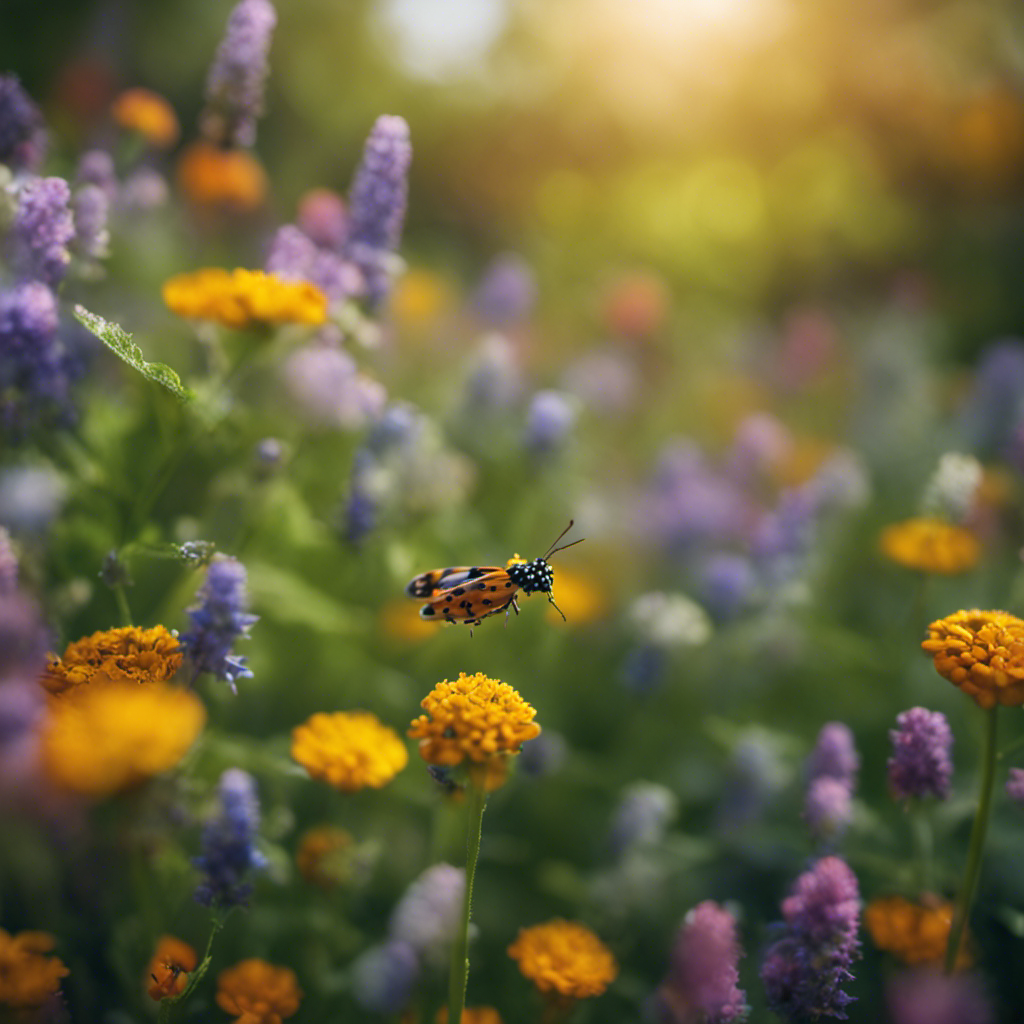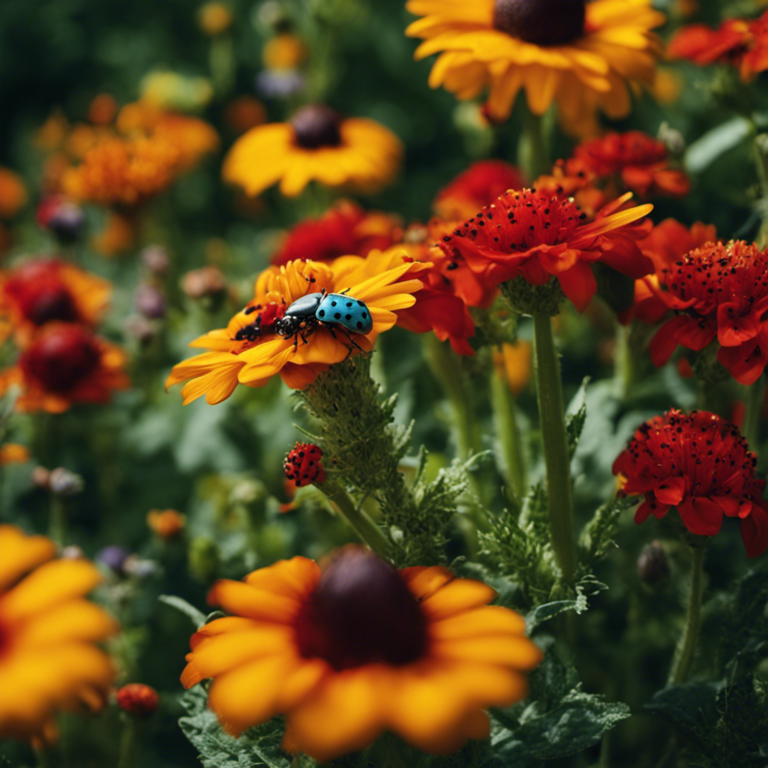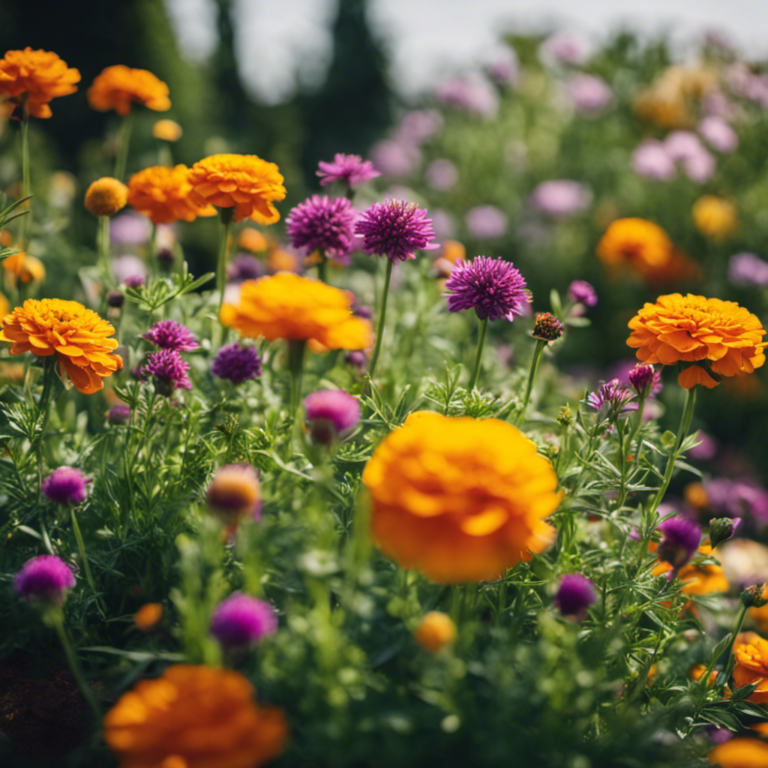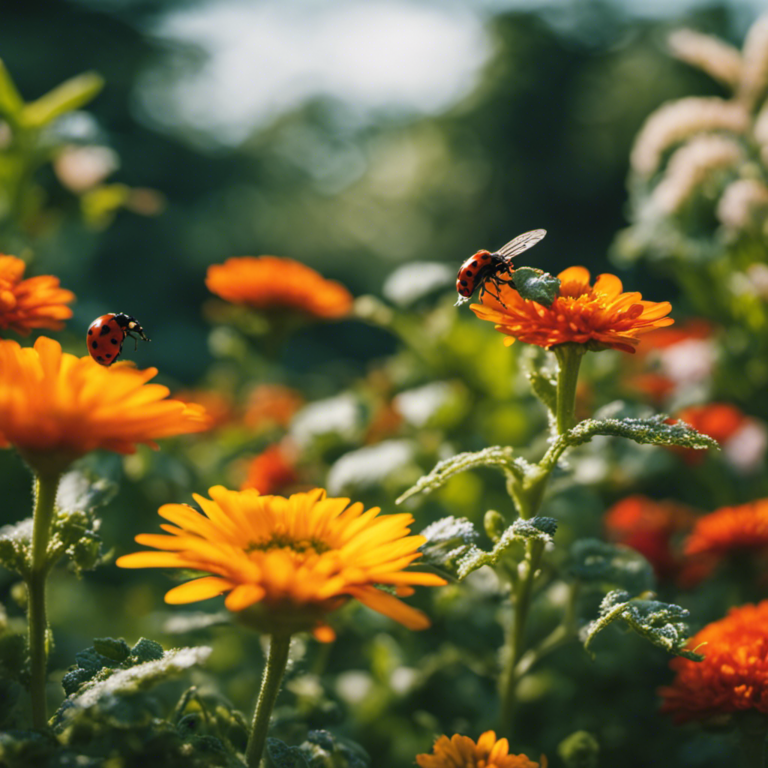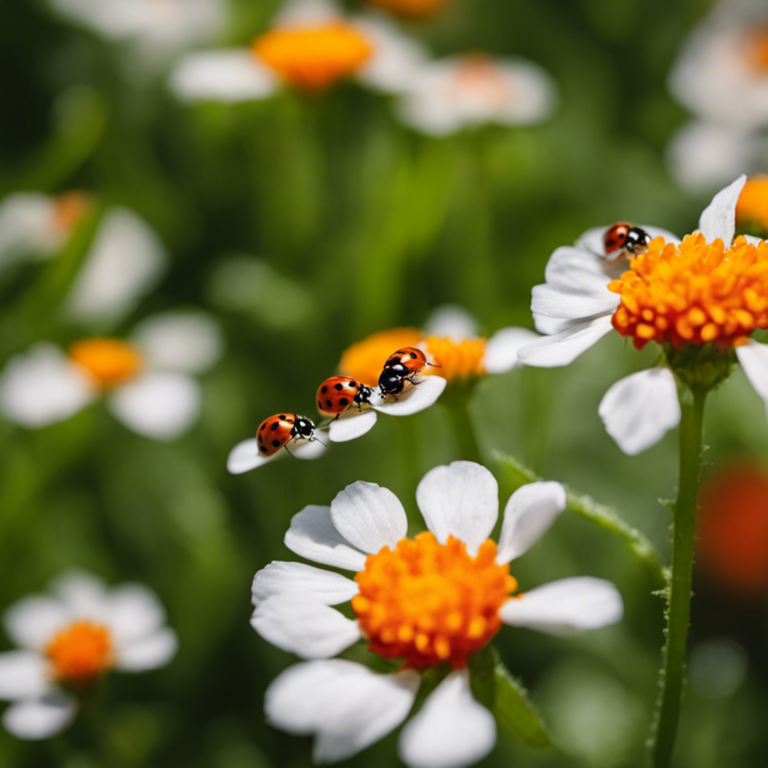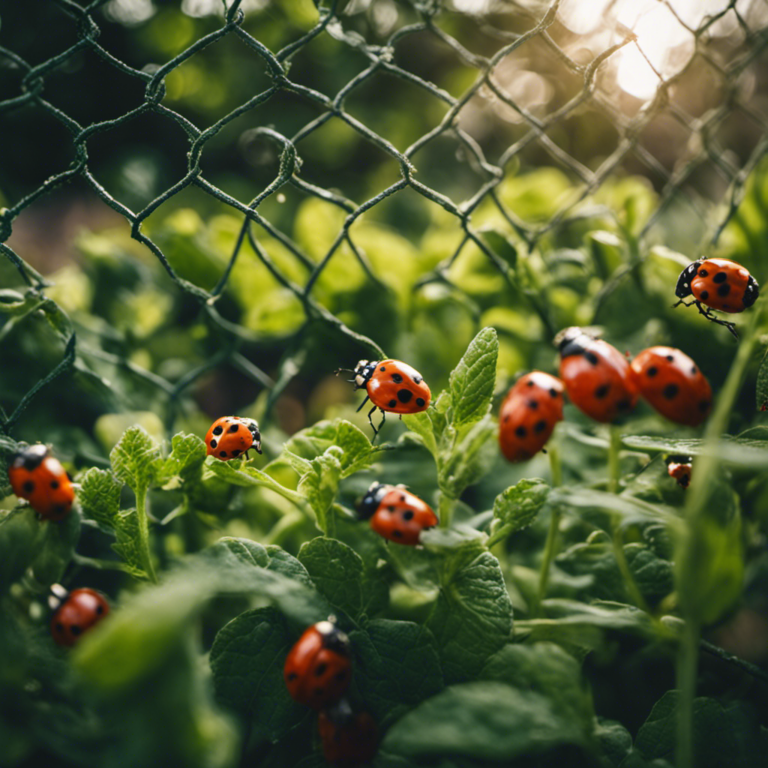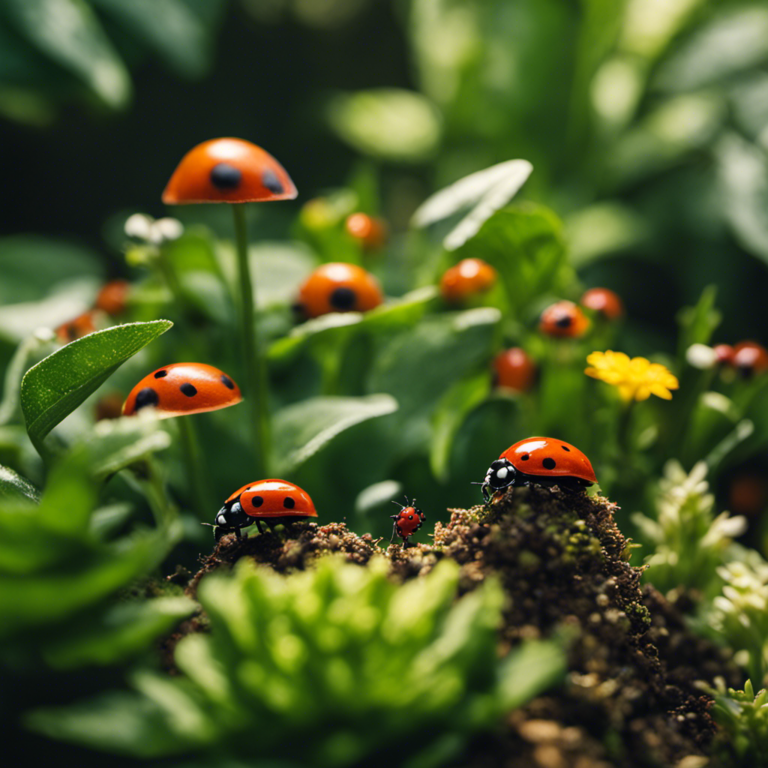Are bothersome pests causing trouble in your herb garden, like unwelcome guests at a party?
No need to worry! We have some fresh and effective approaches for natural pest control that will help your garden thrive in no time. Bid farewell to harmful chemicals and say hello to environmentally friendly solutions.
From using organic insect repellents to practicing companion planting and making homemade herbal sprays, we have you covered.
Additionally, discover how to attract beneficial insects and create physical barriers to prevent pests.
Your herb garden will greatly appreciate it!
Key Takeaways
Incorporating natural pest control methods in your herb garden can help create a well-balanced and environmentally-friendly space. Instead of relying on harmful chemicals, consider using organic insect repellents, companion planting, homemade herbal sprays, beneficial insects, and physical barriers to keep pests at bay.
It’s important to work alongside nature’s own pest regulation mechanisms, rather than against them. By doing so, we can cultivate a thriving garden that respects the delicate balance of our surroundings. Remember, as the saying goes, "Let nature be your guide, and your garden will flourish."
By adopting these fresh approaches to pest control, you can ensure the health and vitality of your herb garden while minimizing harm to the environment. Embracing natural solutions not only benefits your plants but also contributes to a more sustainable and harmonious ecosystem.
So, why not take a step towards a greener and healthier garden? Try out these natural pest control methods and see the difference they can make. Your herbs and the environment will thank you for it.
Organic Insect Repellents
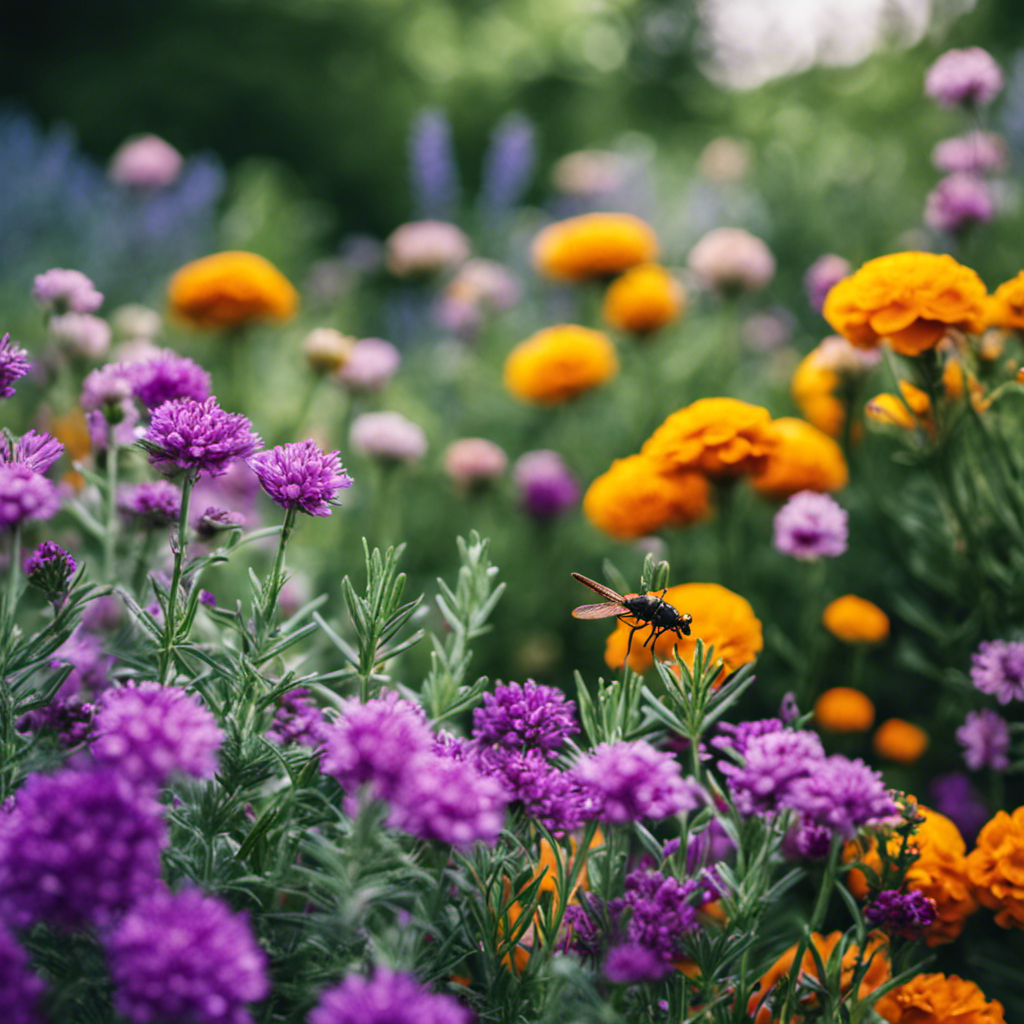
Protecting your herb garden from pests can be done effectively and naturally with the use of organic insect repellents. These eco-friendly alternatives not only keep your plants safe but also ensure the well-being of the environment.
One popular choice is essential oils, which have been proven to repel insects without the need for harmful chemicals. For instance, peppermint oil is known to deter ants, aphids, and beetles, while citronella oil effectively keeps mosquitoes and flies at bay.
You can easily create your own organic insect repellent by diluting a few drops of essential oil in water and spraying it on your plants. This not only helps in keeping pests away but also adds a pleasant fragrance to your garden.
Companion Planting for Pest Control
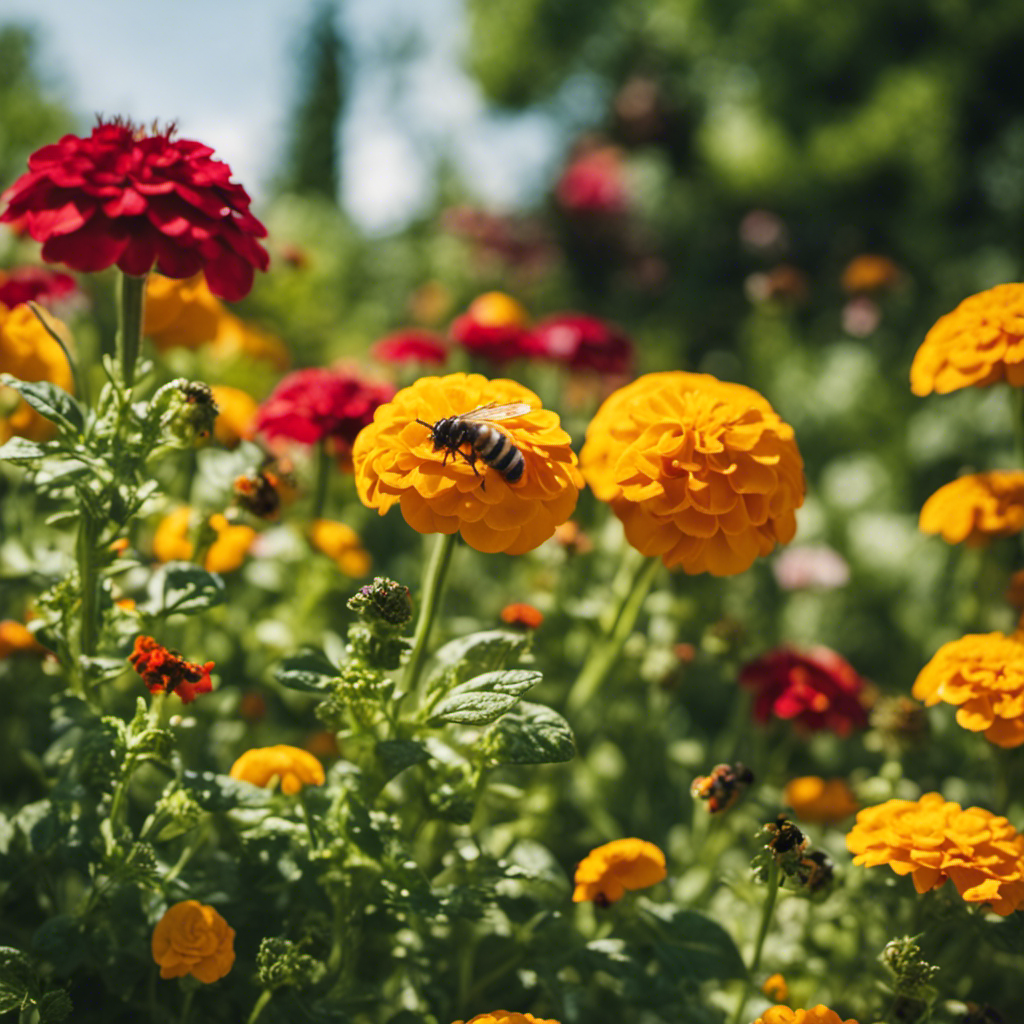
One effective method to control pests in your herb garden is through companion planting. Companion planting involves growing certain plants together that naturally repel pests, reducing the need for chemical pesticides.
You can achieve intercropping benefits by planting herbs like basil, rosemary, and mint alongside vegetables or flowers. These herbs release strong scents that deter pests, such as aphids and beetles, from attacking nearby plants.
Additionally, companion planting can provide advantages for crop rotation. By rotating the types of plants you grow in your garden, you can disrupt the life cycle of pests, preventing them from establishing and spreading.
This method is practical, eco-friendly, and also benefits others by providing them with healthier, pesticide-free herbs and vegetables.
Homemade Herbal Insect Sprays
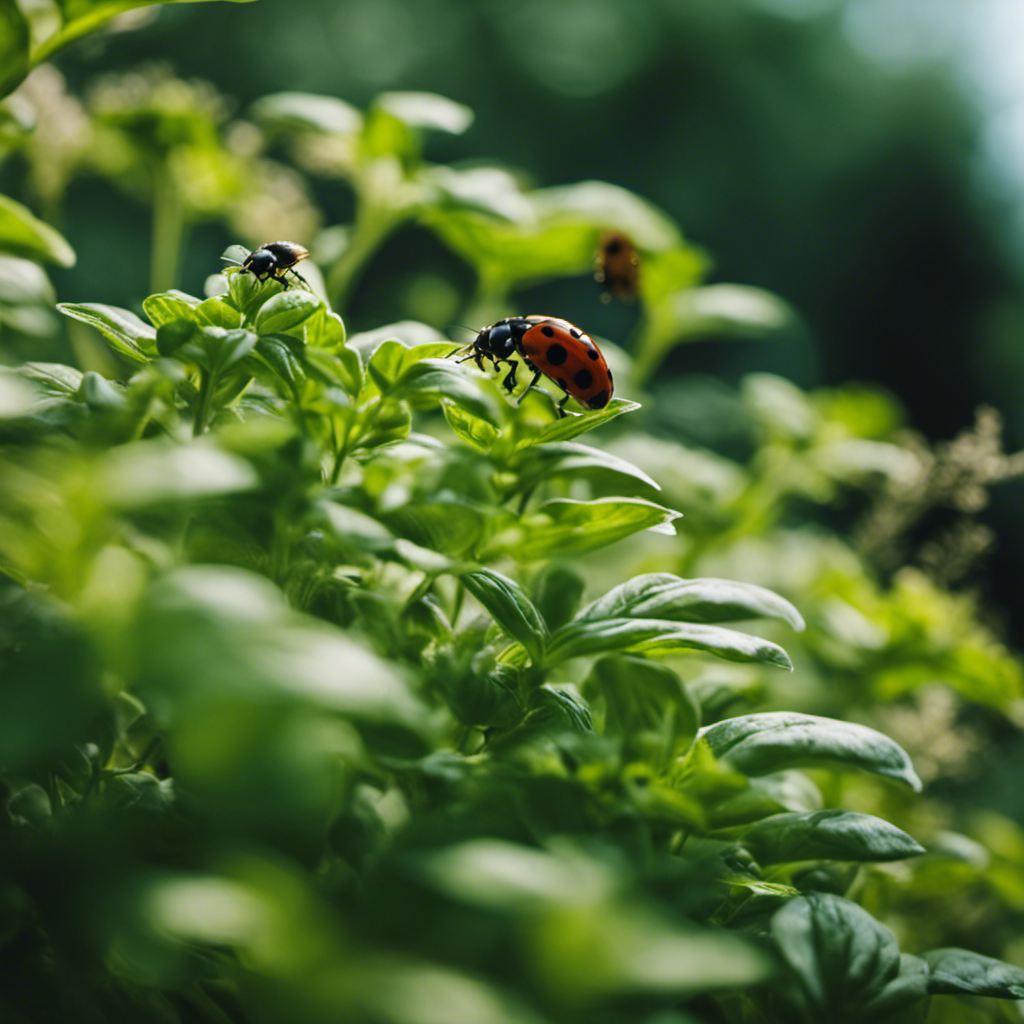
You can create your own herbal insect sprays to effectively control pests in your herb garden, reducing the need for chemical pesticides. DIY bug sprays aren’t only effective but also environmentally friendly and safe for your plants.
Here are four herbal pest remedies that you can easily make at home:
-
Citrus Spray: Start by boiling water and adding sliced citrus fruits such as lemons or oranges. After it cools down, strain the mixture and pour it into a spray bottle. This spray acts as a repellent for aphids, ants, and fleas.
-
Garlic Spray: Begin by crushing a few garlic cloves and mixing them with water. Let the mixture sit overnight, strain it, and then spray it on your plants. This spray deters aphids, caterpillars, and beetles.
-
Neem Oil Spray: Mix neem oil with water and add a few drops of dish soap. Spray this mixture on your plants to control a wide range of pests, including mites, aphids, and whiteflies.
-
Mint Spray: Boil water and add fresh mint leaves. Let it cool, strain it, and then spray it on your plants. This spray repels ants, aphids, and mosquitoes.
Beneficial Insects in the Garden
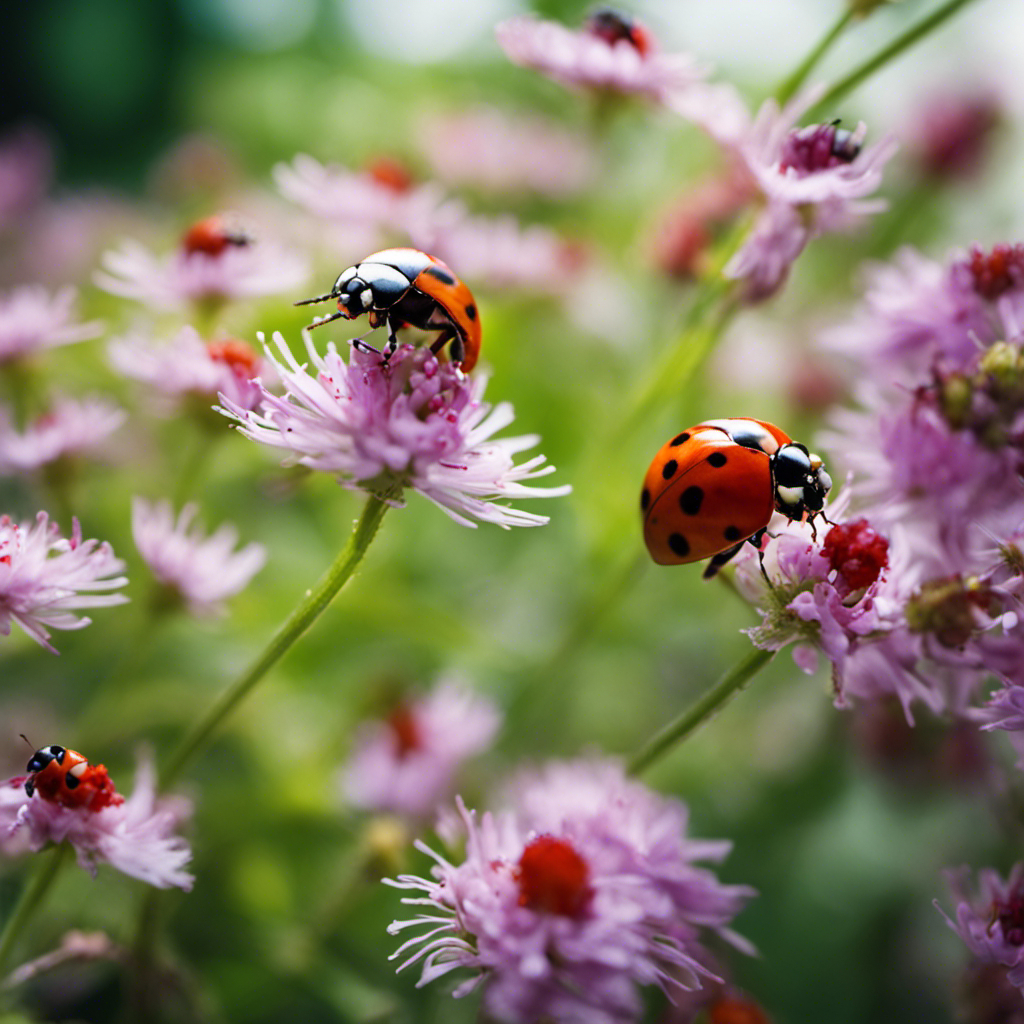
The presence of beneficial insects is vital for maintaining a balanced pest population in your herb garden. These helpful insects serve as natural pest control, reducing the need for harmful chemical pesticides.
One effective way to attract beneficial insects is by creating a diverse and inviting garden environment. Planting a variety of herbs and flowers that attract pollinators like bees, butterflies, and ladybugs can help. These insects not only assist with pollination but also prey on pests such as aphids, mites, and caterpillars.
Another method to consider is implementing biological control. This involves introducing specific beneficial insects, like parasitic wasps or nematodes, that target and eliminate specific pests in your garden.
Physical Barriers for Pest Prevention

Protecting your herb garden from pests can be achieved through the use of physical barriers. These barriers serve as a shield, effectively keeping unwanted pests away and ensuring the well-being of your herbs.
Here are four effective physical barriers you can incorporate into your garden:
-
Fencing: Surround your herb garden with a sturdy fence to prevent larger pests, such as rabbits and deer, from causing damage by entering the area.
-
Row Covers: Utilize lightweight fabric covers to create a protective barrier over your herbs. This not only safeguards them from pests but also helps maintain optimal temperature and humidity levels.
-
Netting: Cover your herb plants with netting to deter birds and flying insects from feeding on your valuable herbs.
-
Mulch: Apply a layer of mulch around your herb plants to create a physical barrier that discourages pests from accessing the soil and harming the roots.
By incorporating these physical barriers into your garden, you can significantly reduce your reliance on chemical pesticides and adopt a more environmentally friendly approach to pest control.
Remember that physical barriers should be part of a comprehensive pest management strategy, alongside biological controls, to ensure the long-term health and vitality of your herb garden.
Conclusion
By incorporating natural pest control methods such as using organic insect repellents, companion planting, homemade herbal sprays, beneficial insects, and physical barriers, you can create a well-balanced and environmentally-friendly herb garden.
It’s important to remember that nature has its own way of regulating pests and plants, so it’s best to work alongside it rather than against it.
Together, we can cultivate a thriving garden that also respects the delicate equilibrium of our surroundings.
As the old saying goes, ‘Let nature be your guide, and your garden will flourish.’
